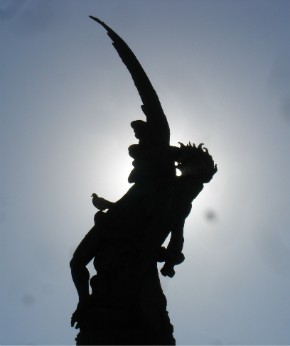Millions of unknown saints
“Even Lucifer might well have a change of heart,” said the fifth grader. “Isn’t that right, Father?”

One day when I was in grade school at Our Lady of Perpetual Social Awkwardness there was a snap quiz, sort of, when our stern pastor suddenly visited our class and asked us about the saints for whom we were named.
Inasmuch as this was a Catholic school, and almost all of us were Irish Catholic or Italian Catholic, nearly all of us were indeed named for saints, as was the Catholic custom long ago in many countries around the world. Indeed nearly all the girls in class had Mary in their names somehow, either as a first name or a middle name, or they had a version of Mary’s name as their first or second names (Maureen, Moira, Maria), or they were named for Mary’s cousin Elizabeth or her mother Anne; one girl, MaryAnne Elizabeth, was named for all three, which we assumed meant she had no choice in life but to be a nun, though she was a brawler of a girl.
The good sweet Lord alone knows what the pastor was thinking when he stepped into our classroom abruptly and began to pepper us with questions about our names; perhaps he thought it a great chance for hagiographic education, or he had wanted to pop in on the teacher and see if she was teaching what she was supposed to be teaching, or maybe he was just a little lonely and frazzled and needed some of the fizz and burble of a fifth-grade classroom. But he had caught us by surprise, and we were a little afraid of him anyway, given his authority and uniform, and very few of us were able to speak cogently of the saints for whom we were named. In my case the situation was even more awkward, for I had not been named for a saint, but for the last high king of Ireland, Brian Boru. I explained this to the pastor when my turn came, and to his credit he smiled, and said that he had the utmost respect for my parents, pillars and stalwarts of the parish, and anyway there had been a Blessed Brian, who had been given the gift of martyrdom, in the year 1591, when Catholics were hunted down and slain in the streets of London, so this means, of course, Brian, that there’s an open slot for a St. Brian, and perhaps, if you work hard, you will someday be a saint.





